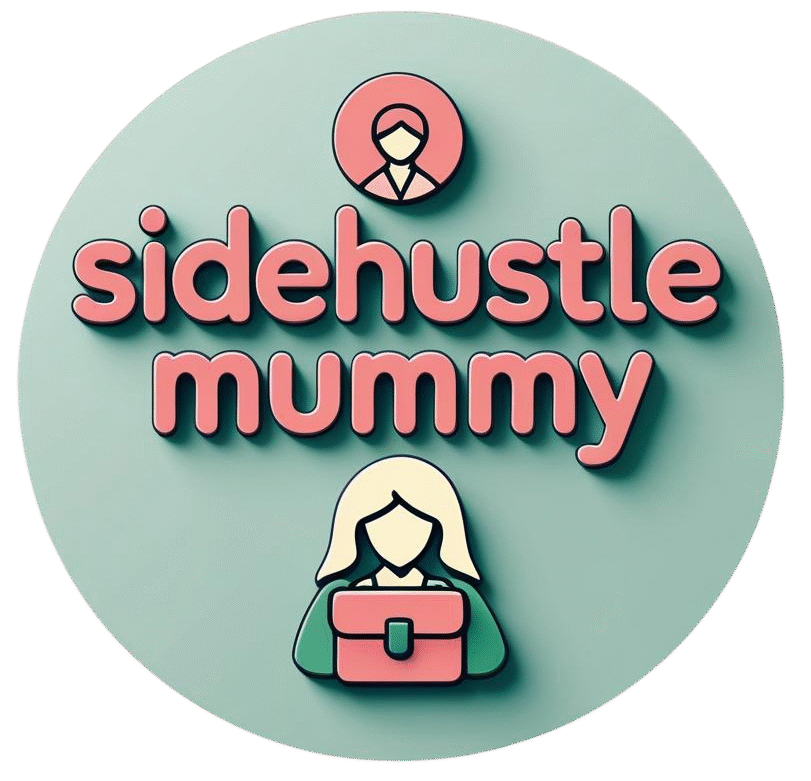This article was originally sourced from the document: How to Design Printable Planners That Sell.docx
How to Design Printable Planners That Sell
Introduction
Printable planners are one of the most popular and profitable digital products in the online marketplace today. Whether you’re a mompreneur, side hustler, or creative just starting out, designing planners can be an incredibly rewarding way to earn passive income while doing something you love.
Planners are in demand all year round—daily planners, meal planners, homeschool planners, wedding planners, wellness trackers, budget worksheets—you name it. The beauty of this business is that you create once and sell forever.
But not all planners sell. To stand out in a saturated market like Etsy, Gumroad, or Creative Market, you need a smart design strategy and the right tools.
In this post, we’ll cover:
What makes a printable planner successful
Design and layout tips to boost visual appeal and usability
The best tools to create your planners (even as a beginner!)
Where to sell your planners for profit
And how to price them for maximum earnings
We’ll also include links to the tools I personally use—like Canva, Gumroad, Etsy, and Creative Market—so you can start building your planner business today.
What Makes a Good Planner?
Before we jump into design, let’s define what makes a printable planner successful—not just pretty.
1. It Solves a Problem
The best-selling planners address a specific need. For example:
A “New Mom Survival Planner” helps exhausted moms manage baby care and self-care.
A “Student Study Planner” helps teens plan exams, assignments, and breaks.
A “Side Hustle Goal Tracker” supports entrepreneurs balancing work and dreams.
🎯 Tip: Niche down. General planners are easy to overlook. Specific ones solve problems—and sell.
2. It’s Functional AND Aesthetic
Your planner should be both useful and beautiful. Clean, user-friendly design wins every time. Buyers want something they can print easily and use every day.
Key qualities:
Easy to write on (space between lines, no dark backgrounds)
Logical flow (daily → weekly → monthly)
Minimal but stylish
3. Printable-Friendly
Think print-first. That means:
Black-and-white or soft-toned options (to save ink)
US Letter (8.5×11), A4, or half-size layouts
PDF format (ideal for print)
Optional: Offer both a printable and a digital (fillable PDF or GoodNotes) version.
4. Editable for Reuse
Some customers love customizing. Consider offering editable Canva templates for business-to-business (B2B) buyers like coaches or content creators.
Layout Tips for High-Converting Planners
Layout makes or breaks your planner. A poor layout = low usability. A thoughtful layout = repeat buyers.
Here’s how to layout planners that not only look great but work great.
1. Choose a Consistent Grid
Whether you’re designing a one-page tracker or a full 50-page planner, your layout should follow a clear grid system.
Use 3 key principles:
Alignment: Use guides to align text and boxes.
Hierarchy: Important info stands out (e.g., big date box, smaller note space).
Balance: Leave breathing space—cluttered pages overwhelm.
2. Decide on Core Pages
Most planners include a mix of the following:
Cover Page
Belongs To Page
Monthly Calendar
Weekly Planner
Daily Log
To-Do Lists
Notes Pages
Habit Trackers
Goal Planners
Budget Sheets
Vision Boards
You don’t need to include them all—start with 5-10 useful pages.
3. Use Clean Typography
Use no more than two fonts: one decorative (for headings) and one readable (for text). Stick to large enough font sizes (at least 10pt).
4. Keep Color Minimal
Too much color distracts—and wastes ink. Use soft neutrals, blush tones, sage, or grayscale to appeal to printable users.
Offer color + grayscale versions when possible.
5. Think About Flow
Pages should feel cohesive. For example:
Week overview → Daily planning
Monthly goals → Weekly tasks → Daily habits
Budget goals → Expense tracker → Savings log
Tools to Use
The right tools can make designing your planners easy—even if you’re not a graphic designer.
Here are my top picks (with links):
1. Canva (My #1 Choice)
💡
Canva is the best beginner-friendly design tool for printable creators. It’s easy, drag-and-drop, and packed with templates.
Why Canva Rocks:
Free version is powerful
1000s of templates and fonts
You can design, export, and duplicate pages easily
Canva Pro allows brand kits, custom dimensions, and commercial licensing
Affiliate Tip: Recommend Canva to your audience as well—it’s a great way to earn affiliate income.
2. Affinity Publisher or Adobe InDesign
These tools are more advanced and ideal for complex or large planners (20+ pages).
Pros:
Full control over layout
Professional-grade publishing features
Cons:
Steeper learning curve
Higher cost (unless you’re doing this full-time)
3. Creative Market
🛒
If you want to start fast, buy ready-made templates and customize them.
Why Use Creative Market:
High-quality design assets
Lifetime commercial rights available
Fonts, illustrations, and layouts included
Monetization Tip: Once you get skilled, sell your own templates on Creative Market!
4. Google Fonts + Freepik
Use free design resources legally.
: For web-safe, beautiful typography
: Icons, illustrations, and vector art (be sure to check licensing)
Where to Sell Your Printable Planners
Here are the best platforms to list your planners for sale (plus some tips for each):
1. Etsy
🛍️
Still the #1 marketplace for printable planners.
Pros:
Huge audience of planner buyers
SEO-friendly search engine
Ideal for beginners
Tips:
Use strong keywords (“2025 Printable Wellness Planner for Moms”)
Offer multiple sizes and bundles
Add lifestyle mockups (Canva has templates!)
2. Gumroad
📦
Perfect for direct sales from your blog, Instagram, or email list.
Pros:
Simple storefront setup
No monthly fees
Instant delivery + payment
Tips:
Use product bundles
Add upsells like “Editable Canva Template Version”
3. Creative Market
🎨
Great for selling to other creators, coaches, and businesses.
Best For:
Canva templates
Brand kits
Editable planner packs
Tips:
Focus on quality and professional design
Submit weekly new products to grow visibility
4. Your Own Website or Blog
Long-term, this gives you the most control.
Set Up With:
Hosting (like Bluehost or SiteGround)
Shopify or WooCommerce
ConvertKit for email sales funnels
Pro Tip: Use ConvertKit to deliver freebies and upsell full planner kits.
Pricing: How Much Should You Charge?
Pricing is part science, part psychology. Here’s a rough guide:
Basic One-Page Printable
$2–$5
Daily to-do list
Habit tracker
Grocery list
Mini Planner (5–10 pages)
$7–$15
Self-care planner
Meal planner
Budget starter kit
Full Planner (20+ pages)
$15–$30+
12-month dated planner
Homeschool or business planner
Editable Canva version included
Premium Bundle (50+ pages, editable, commercial use)
$30–$99
For Creative Market or coach use
Include tutorials, brand kits, etc.
Tip: Add value (not just pages) to increase your price. Offer bonuses, variations, or editable files.
Bonus: Tips for Standing Out in a Crowded Market
Niche Down: “Gratitude Planner for Nurses” stands out more than “Daily Planner.”
Add a Unique Angle: Include QR codes to bonus videos, meditation audios, or journaling prompts.
Design for Emotion: Make buyers feel organized, calm, and empowered.
Bundle & Upsell: Create theme-based bundles and cross-promote inside each product.
Final Thoughts
Designing printable planners is not just a creative outlet—it’s a real business model that brings in consistent, scalable income when done right. Whether you’re making $50/month or $5,000/month, it starts with solving a problem, designing a beautiful solution, and showing up where your ideal customer shops.
With platforms like Canva, Etsy, Gumroad, and Creative Market, starting today is easier than ever.
Tools I Recommend (Affiliate Picks)
🖌️ Canva Pro – 🛍️ Gumroad – 🎨 Creative Market – 🛒 Etsy Seller Hub –
Have questions about starting your own printable planner business? Drop them below or join my free newsletter where I share tips, templates, and income ideas weekly!
Would you like a free planner template pack to get started? I can help you design one to offer your readers too!


